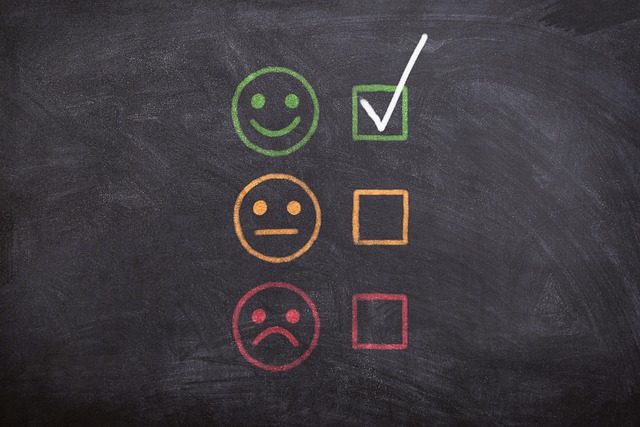The Role of Exercise in Maintaining Work-Life Balance
In today’s fast-paced world, the concept of work-life balance feels increasingly elusive. Many people, especially entrepreneurs, grapple with the demands of their professional lives while attempting to carve out meaningful personal time. Amid the hustle and bustle, exercise emerges as a powerful ally. Not only does it contribute to physical health, but it also plays a pivotal role in fostering mental well-being and achieving balance between work and personal life.
Exercise does much more than just help you shed a few pounds or build muscle. It is a multifaceted tool for enhancing your overall quality of life. When you exercise regularly, you experience a flood of physical and psychological benefits. From boosting your mood to improving your focus, physical activity serves as an antidote to stress, often common in the lives of busy entrepreneurs. When you engage in exercise, your body releases endorphins, often referred to as ‘feel-good’ hormones. This biochemical response can significantly reduce feelings of anxiety and depression, proving beneficial for those whose professional lives often lead them to experience high stress levels.
Moreover, the act of exercising creates an opportunity to disconnect from work-related distractions. Picture this: after a long day of meetings, calls, and emails, you step outside for a brisk walk or hit the gym. For that period, you aren’t checking your phone or thinking about your to-do list. Instead, you focus on the rhythm of your breath or the sound of your footsteps. This break allows you to recharge mentally, making you better equipped to tackle your responsibilities. Ultimately, the mental clarity gained from regular physical activity can lead to improved productivity in your professional endeavors.
Integrating Exercise into Your Daily Routine
Integrating exercise into a hectic lifestyle is often a struggle for many entrepreneurs. The thought of fitting in a workout amidst a packed schedule can feel daunting. However, acknowledging that maintaining your physical health is equally important as your professional obligations can shift your mindset. Start by establishing attainable goals. You don’t have to engage in hour-long gym sessions daily—small, consistent changes make a world of difference. For instance, consider taking the stairs instead of the elevator, or setting a timer to remind yourself to stand and stretch every hour during your workday.
Even incorporating short bursts of activity during your lunch break can vastly improve your well-being. This doesn’t require an elaborate setup or excessive time commitment. Whether it’s a 10-minute brisk walk or a quick bodyweight workout, find a few minutes during your workday to slip in some movement. Over time, you’ll find that these short breaks not only invigorate your body but also clear your mind. In fact, many high-performing individuals find that regular short bouts of exercise can enhance their overall concentration and creativity, which are invaluable assets for any entrepreneur.
If you find it challenging to stay motivated, look for an accountability partner. Engaging with fellow entrepreneurs or friends who share similar fitness goals can help keep you on track. Join a fitness group or community that encourages regular participation in exercise. By surrounding yourself with individuals who prioritize their health, you cultivate an environment of inspiration and encouragement. Plus, social interaction during workouts turns a solitary activity into a fun and enjoyable experience—whether it’s a group yoga session or a running club.
Exercise’s Impact on Mental Health
The connection between physical activity and improved mental health is well-documented. Many entrepreneurs experience a unique set of stresses, and confronting these challenges can lead to feelings of isolation and overwhelm. Regular exercise acts as a proactive strategy to combat these issues. Engaging in physical activity produces neurotransmitters like serotonin and dopamine, which play critical roles in regulating mood. By simply committing to a routine, you not only work on your physical fitness but also contribute substantially to your emotional resilience.
Furthermore, exercise has a meditative quality. As you immerse yourself in physical activity, your mind can shift away from the chaos of your daily responsibilities. Mindfulness achieved through activities like yoga or tai chi can teach you how to remain present, reducing anxiety levels that often accompany the entrepreneurial lifestyle. This mindfulness enhances emotional intelligence, allowing you to make better decisions and manage your workload with greater clarity and composure.
Finally, let’s not overlook the community aspect of exercising. Whether you join local sports teams or fitness classes, the social benefits of physical activity cannot be understated. Meeting new people, sharing experiences, and forming connections garland the sometimes solitary journey of entrepreneurship with camaraderie. This sense of belonging can provide significant emotional support, further reinforcing your work-life balance. As you engage in activities alongside others, it reminds you that while work is important, relationships and health are paramount.
Establishing a Healthy Mindset Toward Exercise
To truly reap the benefits of exercise in achieving work-life balance, it is essential to develop a healthy mindset toward physical activity. Instead of viewing workouts as an obligation or another task on your to-do list, embrace the joy and empowerment that movement brings. It’s all too easy to fall into the trap of pushing yourself to extremes in pursuit of fitness goals, which may lead to burnout or disappointment rather than fulfillment.
Begin by focusing on enjoyment. Try out different forms of exercise until you discover what truly resonates with you. For some, this might mean dancing, hiking, or engaging in outdoor sports. The more you enjoy your workout routine, the more you will want to stick with it. Understanding that exercise does not have to follow a conventional format allows you to integrate physical activity in ways that feel naturally rewarding.
Additionally, recognizing that rest is just as critical as exercise can change your perspective. The journey to wellness involves finding a balance between pushing yourself and allowing your body the necessary time to recuperate. Set specific recovery days in your fitness regimen to avoid the pitfalls of overexertion. A healthy mindset appreciates not just the act of movement, but also the importance of rest and self-care. By valuing your well-being as an entrepreneur, you position yourself for long-term success and happiness in both your personal and professional endeavors.
Creating a Sustainable Exercise Habit
Developing a sustainable exercise habit can feel challenging, especially amidst the myriad responsibilities entrepreneurs juggle. The key is consistency. Start by scheduling your workouts just like you would any important business meeting. Blocking out time in your calendar makes it easier to commit and reduces the chance of letting other tasks siphon that time away. Just as you wouldn’t cancel an appointment for a client, borrow that same energy and respect for your health.
Moreover, setting specific and measurable goals provides you with a clear direction. Whether it’s aiming for a certain number of workouts each week or gradually increasing the distance you run, having goals creates a structure that can sustain your motivation. It’s vital to celebrate small victories along the way to keep your enthusiasm high. When you recognize and appreciate your progress, you reinforce positive behaviors, leading to a lasting commitment to your exercise routine.
Another excellent strategy is embracing flexibility. Sometimes, life throws curveballs, and you may not make it to the gym as planned. Instead of viewing these moments as failures, adapt your approach. If you can’t make it to a workout class, try engaging in a short, intense home workout or go for a walk. The key lies in maintaining momentum, even if it takes a different form than initially intended. Resilience is essential, and developing this flexibility allows you to navigate life’s uncertainties while staying committed to your health.
Conclusion
Finding the intersection between exercise and work-life balance remains a vital pursuit for many entrepreneurs. The profound impact that regular physical activity has on mental clarity, physical health, and emotional wellbeing cannot be underestimated. By actively cultivating a fitness routine that aligns with your lifestyle, you enhance not only your personal well-being but also your professional output. While the journey may present challenges, the rewards of prioritizing exercise are life-changing. An enriched quality of life awaits you when you become dedicated to this pursuit—ultimately creating a more balanced, fulfilling existence.
FAQs
1. How does exercise help improve work-life balance?
Exercise significantly reduces stress levels and enhances mood, creating a more balanced emotional state. It allows you to disconnect from work pressures, leading to better productivity when you return to your tasks.
2. What type of exercise is best for busy entrepreneurs?
High-Intensity Interval Training (HIIT), short workout sessions, or activities like yoga and cycling can be efficient and manageable for busy schedules. Choose whatever you enjoy most to make it sustainable.
3. How can I stay motivated to exercise regularly?
Set specific, measurable goals, find a workout buddy, or join a fitness community. Enjoyable activities and regular acknowledgment of progress keep motivation alive!
4. How often should I exercise to maintain a healthy lifestyle?
Aim for at least 150 minutes of moderate aerobic activity or 75 minutes of vigorous activity per week, along with strength training sessions at least twice weekly.
5. What if I have a hectic schedule and struggle to fit in workouts?
Consider scheduling short bursts of activity into your day, like walking during breaks or exercising at home. Flexibility in your routine allows you to adapt based on your current workload.



